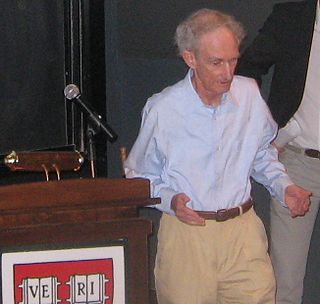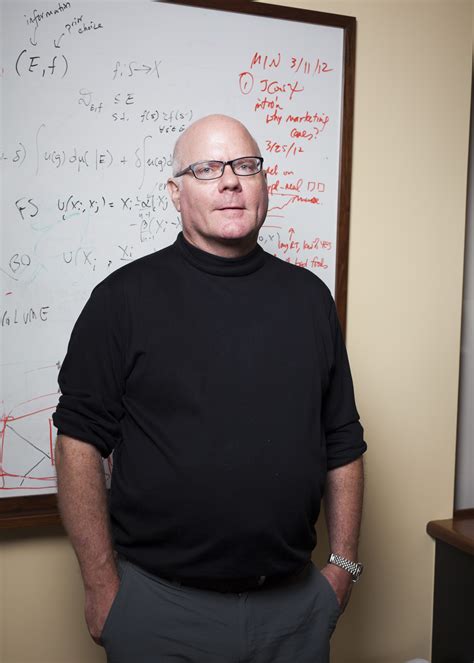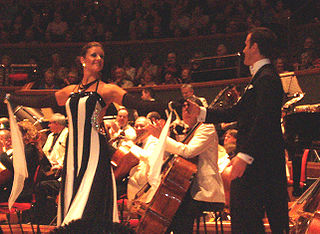A Quote by Robert May, Baron May of Oxford
Related Quotes
Charles Darwin and I and you broke off from the family tree from chimpanzees about five million years ago. They're still our closest genetic kin. We share 98.8 percent of the genes. We share more genes with them than zebras do with horses. And we're also their closest cousin. They have more genetic relation to us than to gorillas.
Yes, genes are important for understanding our behavior. Incredibly important - after all, they code for every protein pertinent to brain function, endocrinology, etc., etc. But the regulation of genes is often more interesting than the genes themselves, and it's the environment that regulates genes.
My own diagnosis of my problem is a simpler one. It's that I share 50 per cent of my genome with a banana and 98 per cent with a chimpanzee. Banana's don't do psychological consistency. And the tiny part of us that's different - the special Homo sapiens bit - is faulty. It doesn't work. Sorry about that.
Individuals are not stable things, they are fleeting. Chromosomes too are shuffled into oblivion, like hands of cards soon after they are dealt. But the cards themselves survive the shuffling. The cards are the genes. The genes are not destroyed by crossing-over, they merely change partners and march on. Of course they march on. That is their business. They are the replicators and we are their survival machines. When we have served our purpose we are cast aside. But genes are denizens of geological time: genes are forever.
And if you listen to Irish music, they say that kilts came from the middle east. So really I'm an Arab. If you listen to the way someone like Sinead O'Connor sang. It could be Muslim. You know that angst that sort of ****. That wail. I think it's in our genes. I think certain stuff is in our genes, like nobody can dance like a black guy. It's in their genes. So we don't have oil, but we have poetry.
Bananas are great, as I believe them to be the only known cure for existential dread. Also, Mother Teresa said that in India, a woman dying in the street will share her banana with anyone who needs it, whereas in America, people amass and hoard as many bananas as they can to sell for an exorbitant profit. So half of them go bad, anyway.
Recently, results of the Human Genome Project have shattered one of Science's fundamental core beliefs, the concept of genetic determinism. We have been led to believe that our genes determine the character of our lives, yet new research surprisingly reveals that it is the character of our lives that controls our genes. Rather than being victims of our heredity, we are actually masters of our genome.
Of course our genes will make some capacities very much easier to learn than others, and of course our genes themselves are not learned. But the point remains that genes themselves are not cognitive capacities, and that anything worth calling a cognitive capacity will depend to some degree on learning and so not be innate.



































